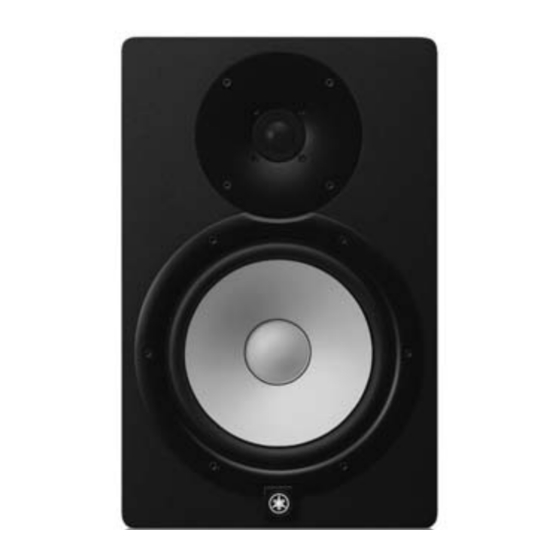NOTICE
To avoid the possibility of malfunction/damage to the product,
damage to data, or damage to other property, follow the
notices below.
Handlin and maintenance
• Do not use the product in the vicinity of a TV, radio, or other
electric products. Otherwise, the product, TV, or radio may
generate noise.
• Do not expose the product to excessive dust or vibration, or
extreme cold or heat, in order to prevent the possibility of panel
disfiguration, unstable operation, or damage to the internal
components.
• Do not install in locations where temperature changes are
severe. Otherwise, condensation may form on the inside or the
surface of the product, causing it to break or deform the wood.
Do not leave condensation on the wood; wipe immediately with
a soft cloth.
• If there is reason to believe that condensation might have
occurred, leave the product for several hours without turning on
the power until the condensation has completely dried out, in
order to prevent possible damage.
• Do not touch the speaker driver unit, since it might cause
malfunction.
• Do not place vinyl, plastic or rubber objects on the product,
since this might cause alteration or discoloration of the panel.
• When cleaning the product, use a dry and soft cloth. Do not
use paint thinners, solvents, cleaning fluids, or chemical-
impregnated wiping cloths, since this might cause alteration or
discoloration.
• Do not place the speaker face down.
• These speakers should be used vertically, not laid on their side.
• Air blowing out of the bass reflex ports is normal, and often
occurs when the speaker is handling program material with
heavy bass content.
• Always turn the power off when the device is not in use.
Connectors
• XLR-type connectors are wired as follows (IEC60268 standard):
pin 1: ground, pin 2: hot (+), and pin 3: cold (-).
Connectable cables
XLR type
XLR type connectors are widely used in professional audio
equipment and installations. The XLR type connectors
provided on the HS series speakers are primarily intended for
use with balanced connections.
Pin 2: hot (+)
Pin 3: cold (-)
Pin 1: ground
Pin 1: ground
Pin 3: cold (-)
Pin 2: hot (+)
Phone type
Phone type connectors can be used for both unbalanced and
balanced connections.
Cables fitted with TRS (tip, ring, sleeve) phone plugs are
necessary for balanced connections to the HS series
speakers. The construction of TRS phone plugs is basically
the same as stereo phone plugs.
For unbalanced connections, connect standard mono phone
plug cables to the HS speaker phone connectors.
RCA pin
Source devices that only have RCA pin type output
connectors can be connected via RCA pin plug to phone plug
conversion cables (cables with an RCA pin plug on one end
and a phone plug on the other). Connections using RCA pin
plug to phone plug conversion cables are unbalanced.
Balanced connections:
noise picked up from external sources. Balanced
connections allow for longer cable runs that would
probably otherwise result in more noise being picked up.
Unbalanced connections:
connect electronic musical instruments and guitars, etc.,
to amplification equipment. If your cable runs do not
extend past one or two meters, unbalanced cables can
probably be used without any problems.
HS8/HS7/HS5/HS8I/HS7I/HS5I/HS8S Owner's Manual
Tip: hot (+)
Ring: cold (-)
Sleeve: ground
Tip: hot (+)
Sleeve: ground
These effectively cancel
Commonly used to
5

